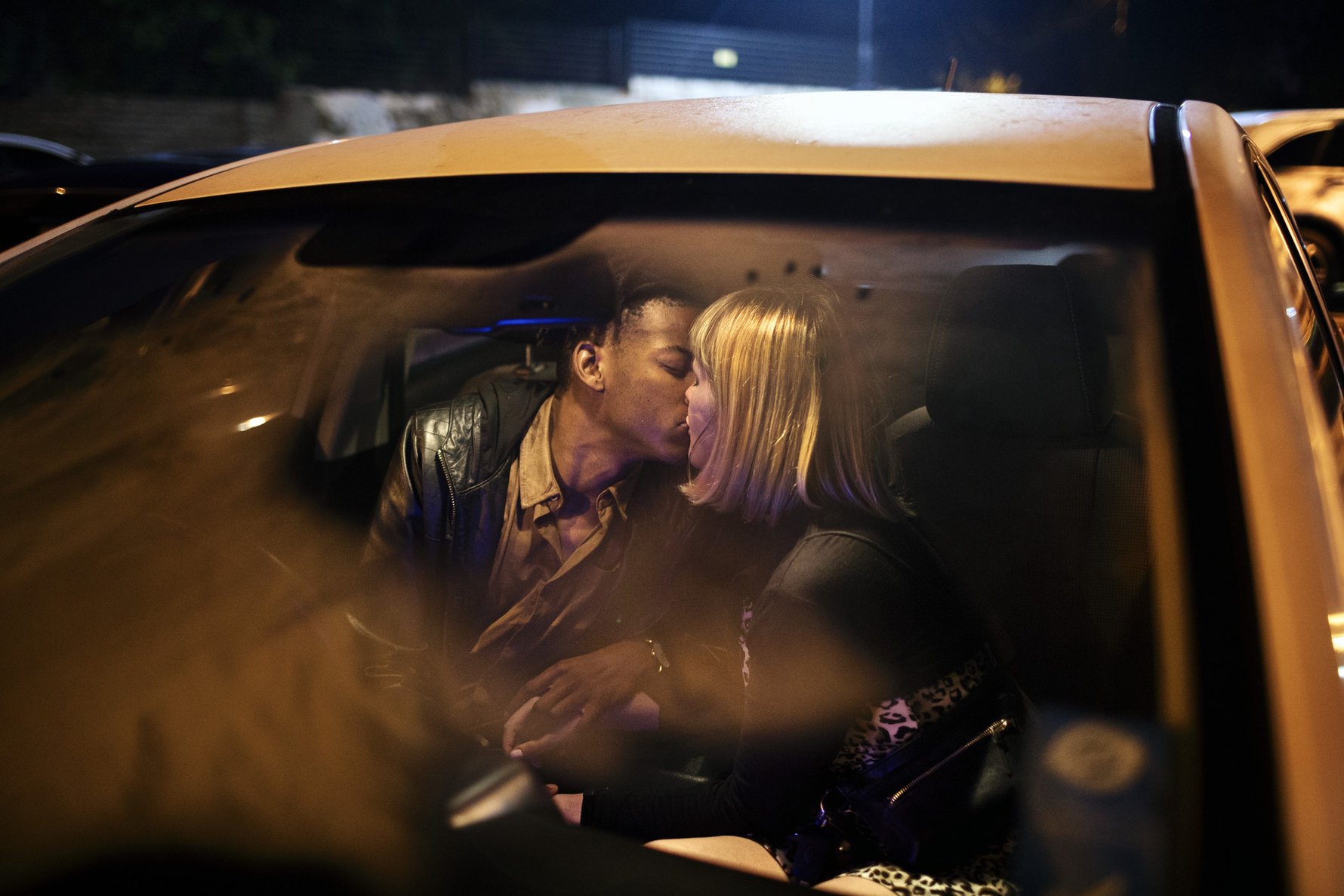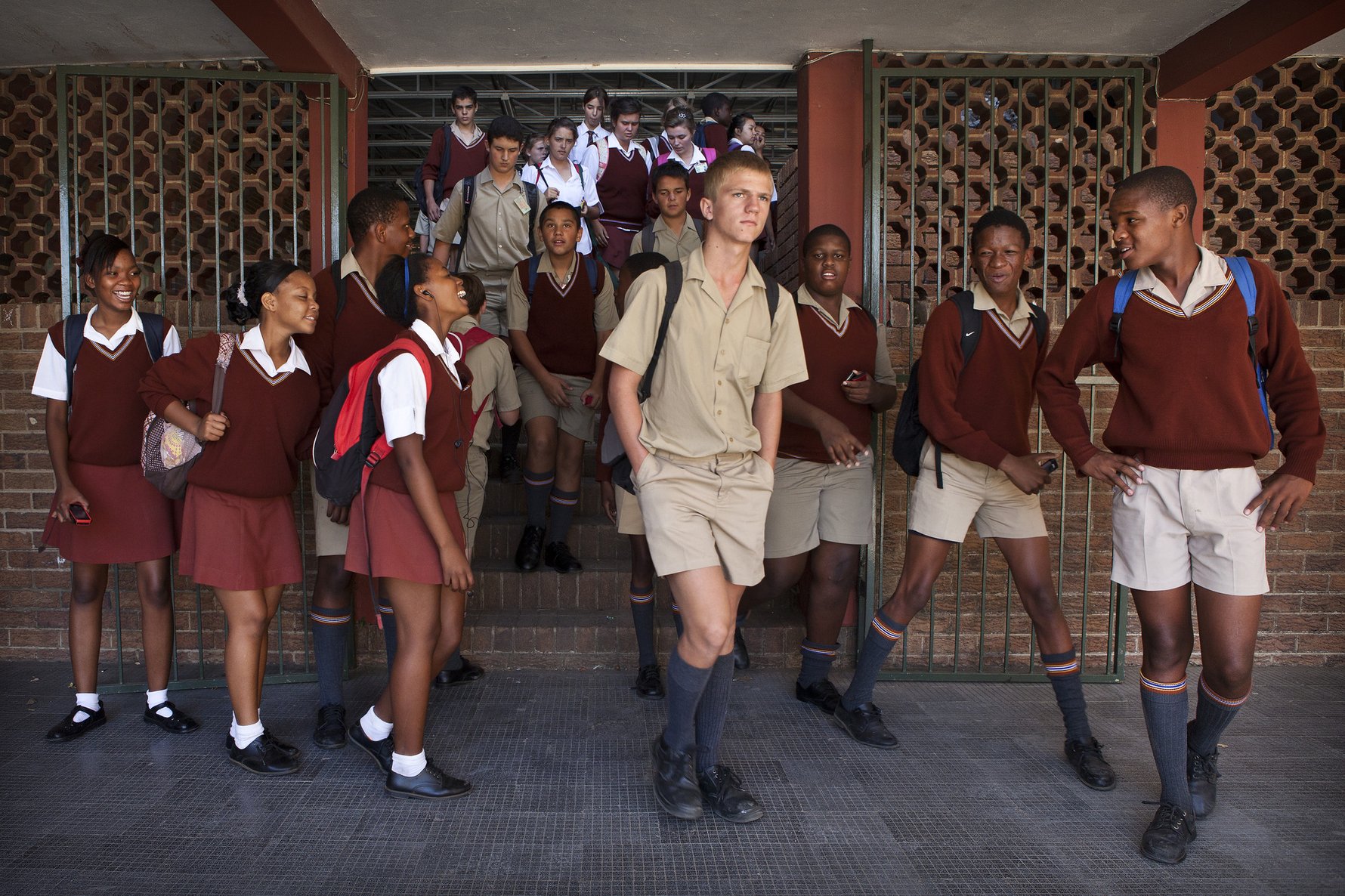Dutch photographer Ilvy Njiokiktjien's solo exhibition Born Free: Generation of Hope at the Apartheid Museum is a visual narrative of the past three decades in South Africa, since the dawn of our democracy in 1994. Through Njiokiktjien's lens, we encounter an intimate portrayal of the first generation to grow up after apartheid rule. It's a poignant body of work that delves into the promise of a "rainbow nation", dealing equally with hope and disillusionment.
While the abolishment of apartheid and institutionalised racial segregation were cause for initial optimism, the wrongs of the past aren't so easily righted. Socio-economic disparities continue to shape South African society, and far too many still struggle. So-called born frees easily form relationships across racial lines and are vocal about social issues, with transformation and justice at the forefront. Since 2007, Njiokiktjien has meticulously documented the lives of this generation.

"I photographed intimate, funny moments and important steps in their lives. The born frees also let me in on the harsh realities of not being able to find a job and on feelings of not belonging. The focus was on their daily lives though, on being at home with parents, on falling in love for the first time, and hanging out with friends. Throughout the years the project became a collaboration with the born frees. They showed me the way, connected me to their friends, and guided me through this process. I cannot thank them enough and this exhibition is an ode to them," says Njiokiktjien.
Held in partnership with the Nelson Mandela Foundation, the exhibition is curated by celebrated South African photographer Neo Ntsoma and Azu Nwagbogu, founder of the LagosPhoto Festival and the African Artists’ Foundation.
Naturally, Njiokiktjien's work strikes a personal chord with Ntsoma, who says, "[She] charts a visual narrative that captures the successes and failures of this new nation. As someone who lived through the final years of apartheid and witnessed the birth of our democracy, it forced me to confront the complexities of our past and present. It’s not just about how far we’ve come, but also about how much further we have to go. Every photograph tells a story – of struggle, of resilience, of hope – and it is these stories that will hopefully spark a national conversation about our shared humanity and the dreams we hold for South Africa’s born free generation."

Meanwhile, co-curator Nwagbogu comes to the body of work from a broader African perspective, saying, "The history of modern nations in the 20th century is often told through the lens of a single influential figure. Yet South Africa stands out as a unique case. As one of the youngest democracies on earth, its history is shaped through the collective eyes of its people, guided by a progressive constitution that was constructed with an awareness of history, and led by a world-revered figure, Nelson Mandela, whose vision and leadership steered the nation through its most challenging times."
Njiokiktjien’s images tell the story of a nation in transition. Nwagbogu adds, "Her strict adherence to photo-documentary ethics allows her to tell an authentic story of a nation imbued with agency, diversity, and resilience. Each photograph offers a glimpse into the lives of ordinary South Africans, highlighting their struggles and triumphs in a rapidly changing society. Through [this] powerful imagery, we are reminded that there is no destination for utopia, but that true democracy is a process, and that the history of South Africa is not just the story of one man, but the collective story of a nation striving towards a better future."
Opening as South Africans both celebrate and sharply question this landmark of 30 years of democracy, Born Free: Generation of Hope makes space for deep reflection through the eyes of a generation who technically never lived under the injustices of apartheid and yet, like those who came before them, remain unequivocally bound to its legacy.
See Ilvy Njiokiktjien's timely solo Born Free: Generation of Hope at the Apartheid Museum until Mon, Mar 31, 2025.


-1_m.jpg)
_m.jpg)
_m.jpg)

